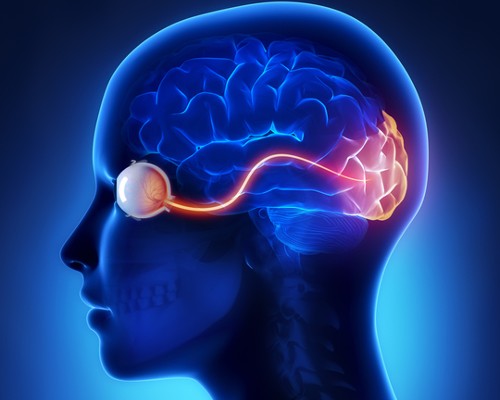
Guidelines to speed up the diagnosis and treatment of patients with nerve swelling at the back of the eye, known as papilloedema, are being developed by researchers at the University of Bristol.
Papilloedema is caused by increased pressure inside the head and could be the first sign of a brain tumour. As 50% of people with a brain tumour have no symptoms, optometrists - eye care professionals who are trained to spot abnormalities and work at opticians - may be the first to notice a problem.
Optometrists often refer many people to hospital because the test results aren't clear or they're not sure how to interpret them.
It can be hard to tell if someone has nerve swelling because there are many normal variations in how healthy nerves look that can be mistaken for swelling. Special types of imaging can help diagnose nerve swelling. In the past, imaging tests were only used in hospital eye departments, but now many optometrists have them.
The National Institute for Health and Care Research (NIHR) funded 'Improving the Diagnostic accuracy of referrals for Papilloedema' (DIPP) Study aims to address these problems by developing and evaluating a set of guidelines for GPs and optometrists to improve the accuracy of diagnostic referrals.
The study has three stages. The first will find out how optometrists and hospitals in different areas in England manage people who may have eye nerve swelling, and look at what training, equipment or resources might help. The second will involve developing guidelines for GPs and optometrists and information leaflets for patients. The third will evaluate how the guidelines are used and whether patient experiences have improved as a result.
Dr Denize Atan, lead of the Eye and Brain group at Bristol Medical School: Translational Health Sciences (THS), Clinical Lead of the Neuro-ophthalmology service at Bristol Eye Hospital, and co-lead of the study, said: "Currently more people with suspected nerve swelling are being referred, which means that people who really do have nerve swelling may be waiting longer for appointments.
"We hope the DIPP Study will help educate and guide GPs, optometrists and hospital doctors to work better together to improve the care and experiences of patients in the NHS."
Dr Alyson Huntley, Senior Research Fellow and co-lead of the study based at the Centre for Academic Primary Care at the University of Bristol, added: "The strength of the DIPP study is that we are taking an integrated approach involving health professionals and the public across the eye care pathway. We are also looking at the situation nationally to provide recommendations for service improvement across England."
In 2016, referrals of people with suspected nerve swelling significantly increased in Bristol, which researchers think may be due to the heightened cautiousness of community health professionals following the gross negligence manslaughter conviction (which was later quashed on appeal) of an optometrist for not identifying papilloedema in a child who later died.
The first findings from the study are expected in 2023.






